Samsung Galaxy S23 Ultra review: the ultimate Android phone?
Samsung's 2023 flagship, the Galaxy S23 Ultra, is here to rule the Android market. But is it really enough of an upgrade?

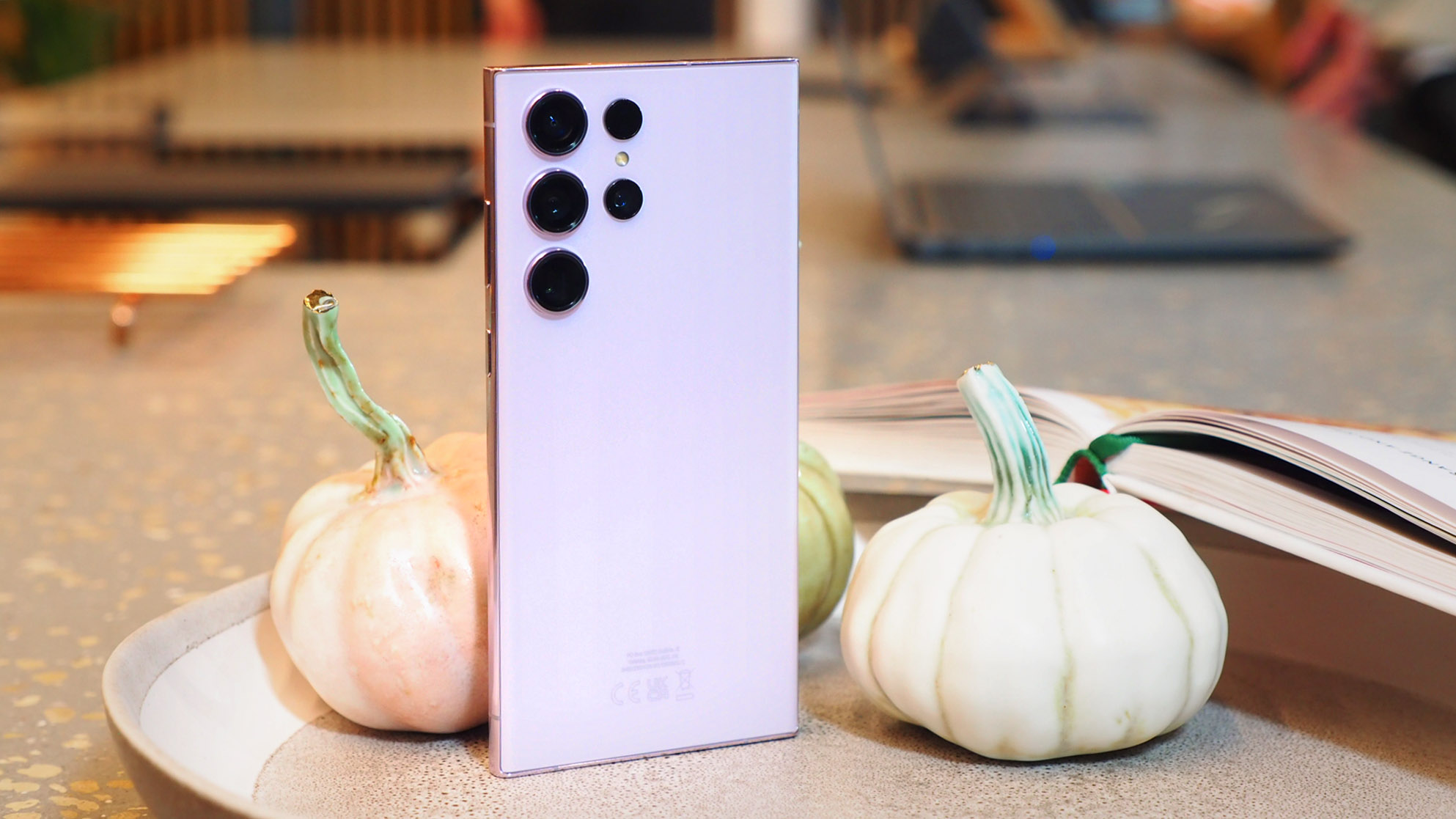
There's two ways to look at the Galaxy S23 Ultra: as an upgrade over the S22 Ultra it's marginal, almost like a half-mast 'S' edition rather than full-blown next-level upgrade; but as a standalone device it's an exceptional, refined and accomplished piece of hardware that's easily among the best Android phones you could consider in 2026. Yes, it's pricey, but if you want the master of all then Samsung is a force to be reckoned with.
-
+
Great design, screen and performance
-
+
Integrated S Pen stylus differentiator
-
+
Advanced camera system is highly versatile
-
-
Mostly the same as S22 Ultra predecessor
-
-
Colours are rather dull
-
-
It's really not cheap
Why you can trust T3
Since the moment Samsung revealed the Galaxy S23 Ultra I've been obsessively using and reviewing the company's premier flagship to get a real taste of whether it's the best Android phone you can lay your hands on in 2026. Spoiler alert: there's a high chance the answer is a resounding 'yes'.
However, that 'yes' does come with caveats. As I've gone into in my Galaxy S23 Ultra versus S22 Ultra feature, the newer phone just isn't all that different to its predecessor. It's also more expensive year on year, making it really pricey (not Apple pricey, mind you). Clearly those points might affect whether you consider buying an S23 model or not. It's certainly twisted my take on the Ultra somewhat.
But this Galaxy S23 Ultra review isn't a never-ending comparison. I've been more interested in using this Samsung as if it's my first take. And having just come from the truly excellent Google Pixel 7 Pro, which has been my staple phone for some months longer than usual (a rare thing for this tech editor, let me tell you) that feels like an apt approach. So, is Samsung the flagship Android king once more?
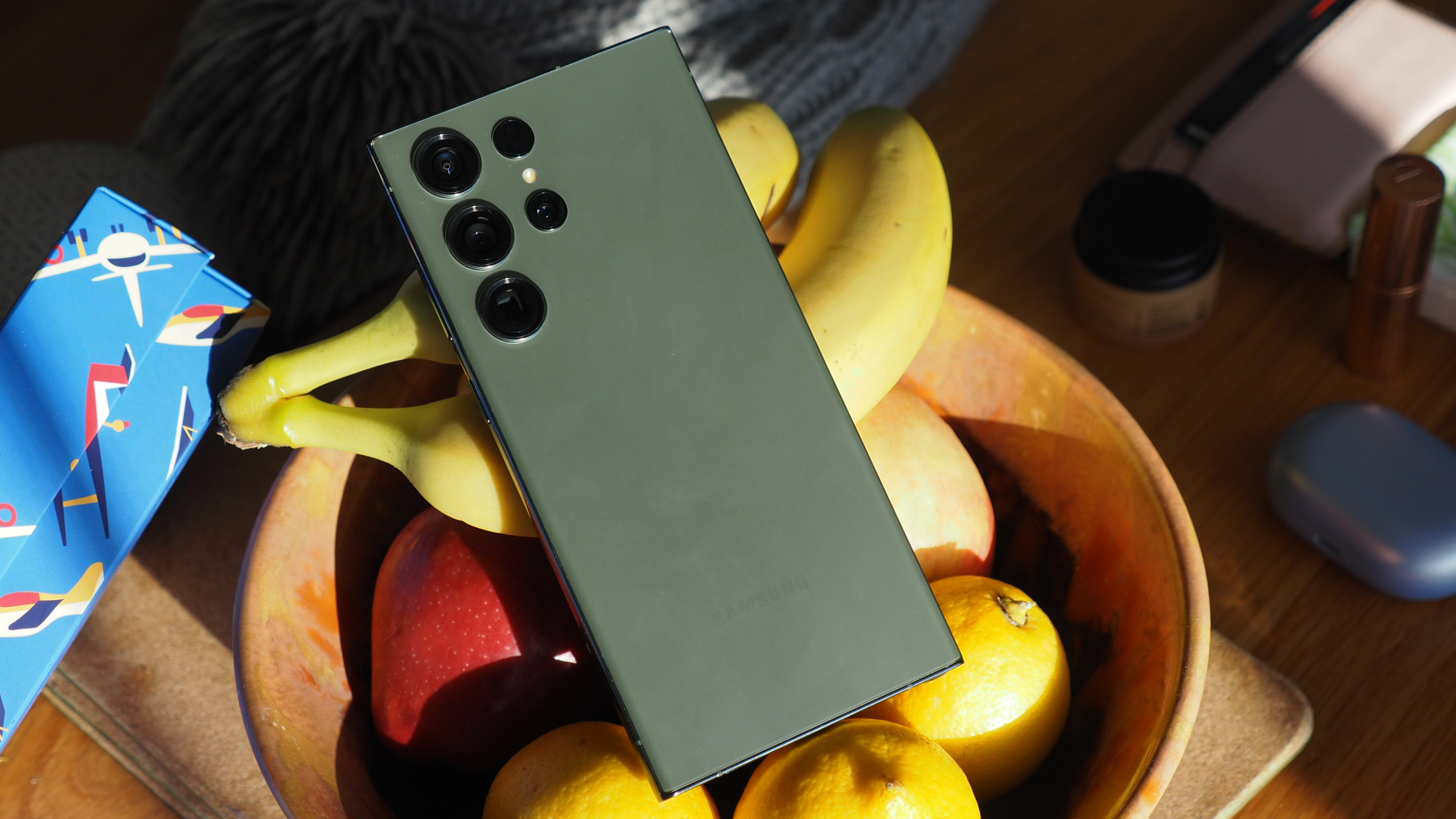
Samsung Galaxy S23 Ultra: Price & Availability
Available to pre-order right up until its 17 February launch date, the Galaxy S23 Ultra is priced from £1,249/$/1,199/AU$1,949. That's for the 256GB version, but there's a double storage promotion on if you're quick.
You can also pay £1,399/$1,379/AU$2,249 if you need 512GB, or only direct from Samsung's store you can get the 1TB model for a princely £1,599/$1,619/AU$2,649. Note that the 512GB and 1TB variants get 12GB RAM, too, which is a 50% boost.
Oh, and before I forget to mention it, Samsung's store is the only place you'll be able to buy the S23 Ultra in interesting 'secret' colours. I've included a picture of my green review device above, because I think it's kinda dull, whereas Samsung's store has exclusive Sky Blue, Lime, Red and Graphite options that I'm all about.
Samsung Galaxy S23 Ultra review: What's new?
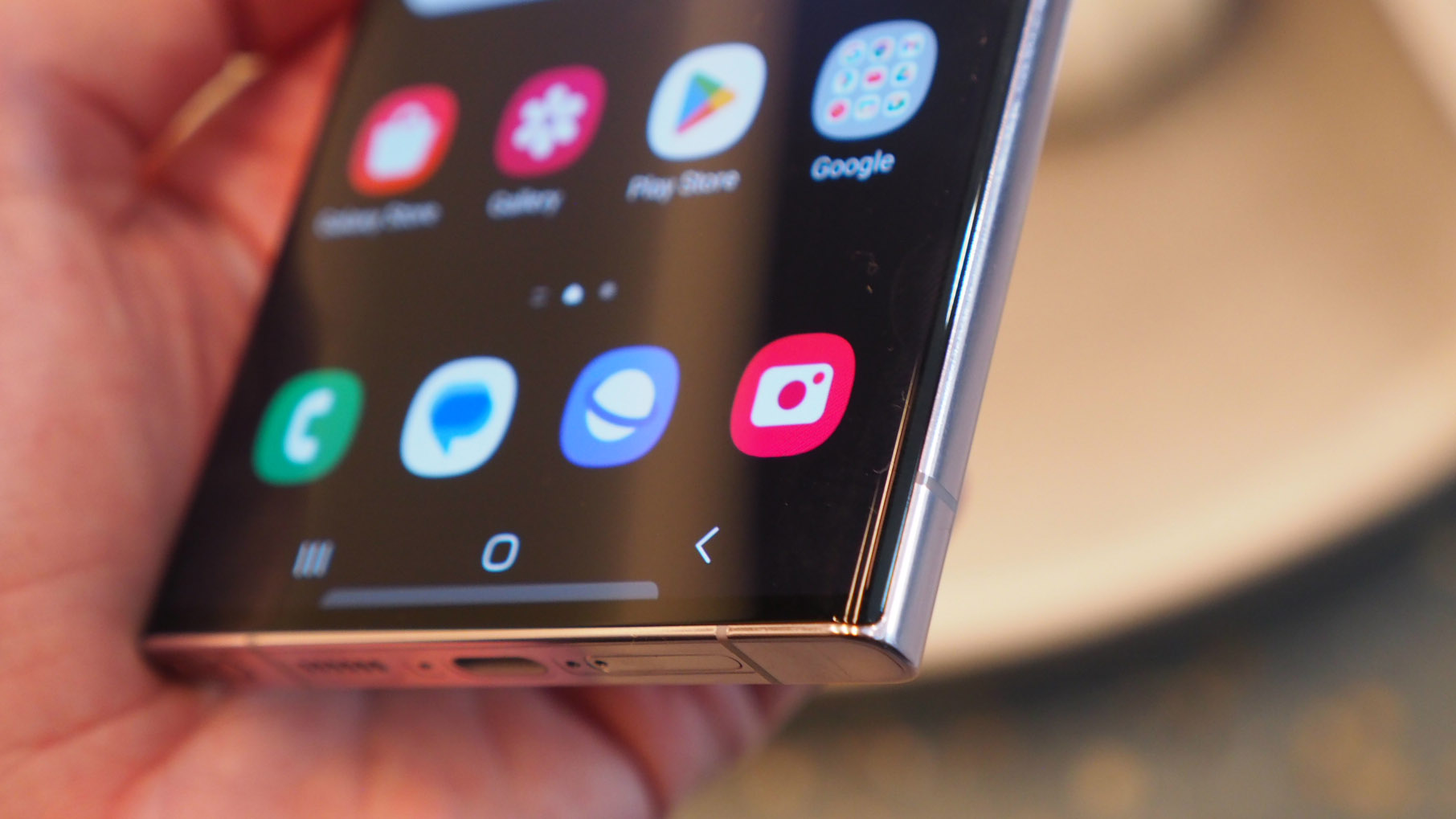
I'm already this far in and I've yet to mention the Galaxy S23 Ultra's all-new 200-megapixel main camera and inclusion of Qualcomm's Snapdragon 8 Gen 2 platform. How rude of me. But, yes, it's true: those are the two biggest new features in the S23 Ultra.
Get all the latest news, reviews, deals and buying guides on gorgeous tech, home and active products from the T3 experts
But that's not all: there are additional tweaks and changes too. The design, for example, has increased the curvature of the screen's edges, providing a greater flat surface area – particularly useful for S Pen stylus use right across the panel. It's not exactly a major change, though, having now used the phone extensively.
That more powerful processor is also what enables the camera to deliver more. In addition to nighttime shooting improvements, there's also 8K video recording at 30fps (it used to be limited to 24fps before). While 200-megapixel certainly sounds impressive, and is the first for Samsung, it's not the first phone with such a resolution: Motorola's Edge 30 Ultra beat Samsung at its own game there.
Samsung Galaxy S23 Ultra review: Design & Display
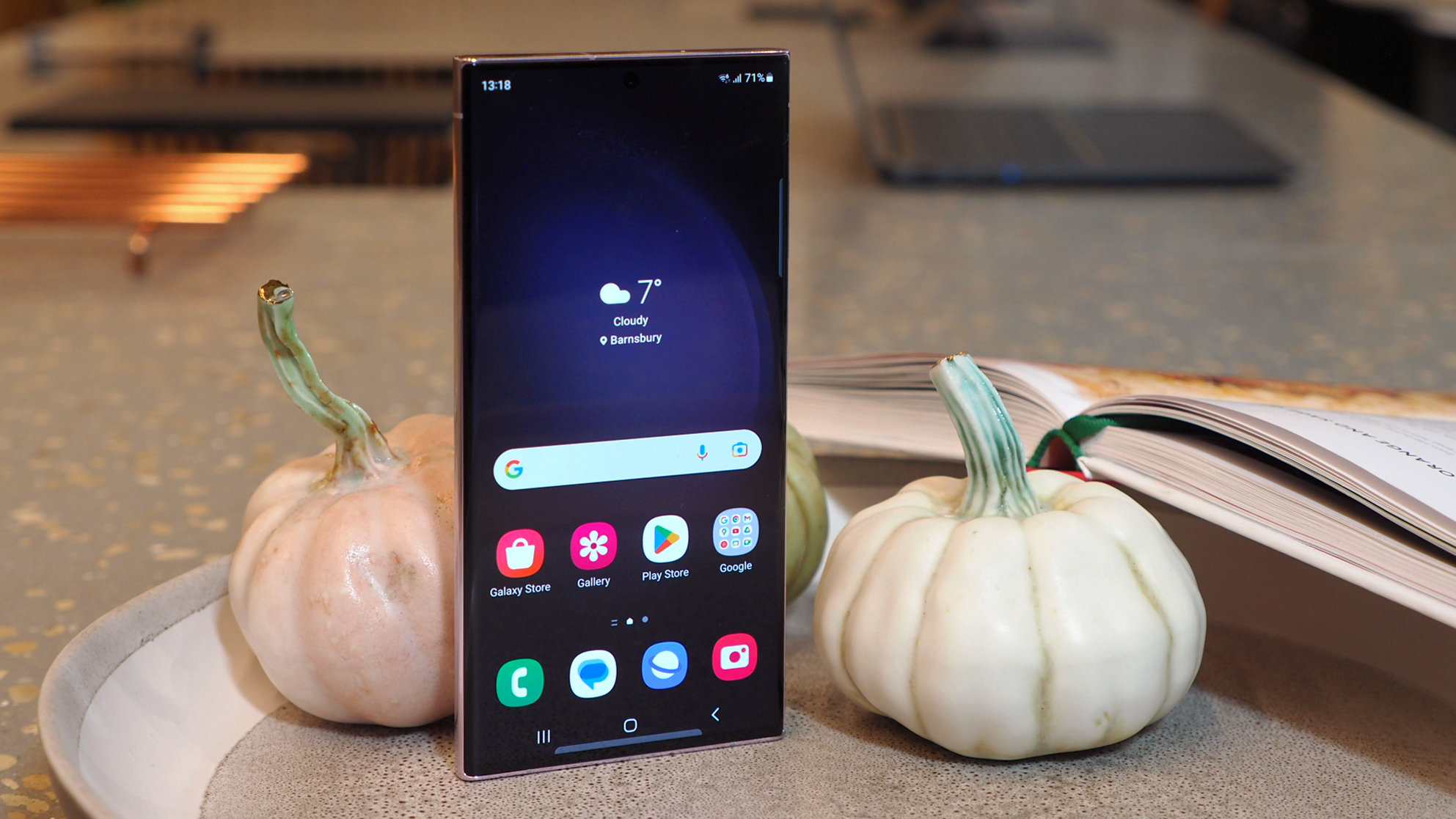
In addition to yet more recycled parts making up the device, the Galaxy S23 Ultra now comes in four colours: Phantom Black, Cream, Green, Lavender. Well, it's kind of eight if you include the Sky Blue, Lime, Red and Graphite options I mentioned earlier, but as carriers won't, er, carry those you're less likely to see them around quite so much. Which I think is a bit of a shame. The Lavender one I've shot in these review photos (taken from my preview time with the phone in late January) are preferable to the green finish of my actual review device.
Other than the colour options, however, it's business as usual. That's to say the Galaxy S23 Ultra looks just like its predecessor. Which some people might think is lazy. I think about it differently though: the flagship Galaxy has an iconic design, really. Even the S23 Plus and smaller S23 models now ape the Ultra's design language, making the trio a proper little family in terms of looks.
I can see Samsung's conundrum here thought: much as I already have a sorta love-hate relationship with the S23 Ultra, that's mainly because its S22 Ultra predecessor was so darn good. If Samsung increased the screen size it'd become unwieldy; if the resolution was increased it'd become a detriment to the battery life and probably (or rarely) ever be utilised anyway; same with a higher refresh-rate option, as the 120Hz panel here is just fine.
Well, that's me being reserved: the S23 Ultra's display is far more than just fine. It's downright delightful. A 6.8-inch panel on its diagonal measure, featuring a 1440 x 3088 resolution (around 500ppi), it's really bright, punchy with colour, while its AMOLED technology ensures beautiful blacks and contrast levels. Smartphone displays don't really come better than this. It even features Corning Gorilla Glass Victus 2, the first time I've seen it in a device, which while I've not intentionally put to the test, I have inadvertently seen works rather well (I'm now three drops in and counting, oops).
I will say that the S23 Ultra is a pretty big phone though. I actually prefer the Google Pixel 7 Pro in terms of scale, as I simply find its 'thumb-reachability' factor that much more favourable for me. The Galaxy is approaching uncomfortable for one-handed use, and yet I'm so used to big-screen phones now that it's in no way unusual. Plus, but of course, you do get the benefit of that massive screen, which is always a bonus.
Another key aspect of the design is the integrated S Pen stylus. It can be clicked and released from its in-body stow with ease. Extracting it will automatically load the relevant software options, which are the same here as they were with its predecessor. Great for note-taking, annotating, drawing, and such like. And if you don't care for it, simply leave it stowed and it'll make little to no difference to your life. I love that the S Pen is here but, realistically, I'm not a heavy user of its charms. Your take might be different though.
Samsung Galaxy S23 Ultra review: Performance
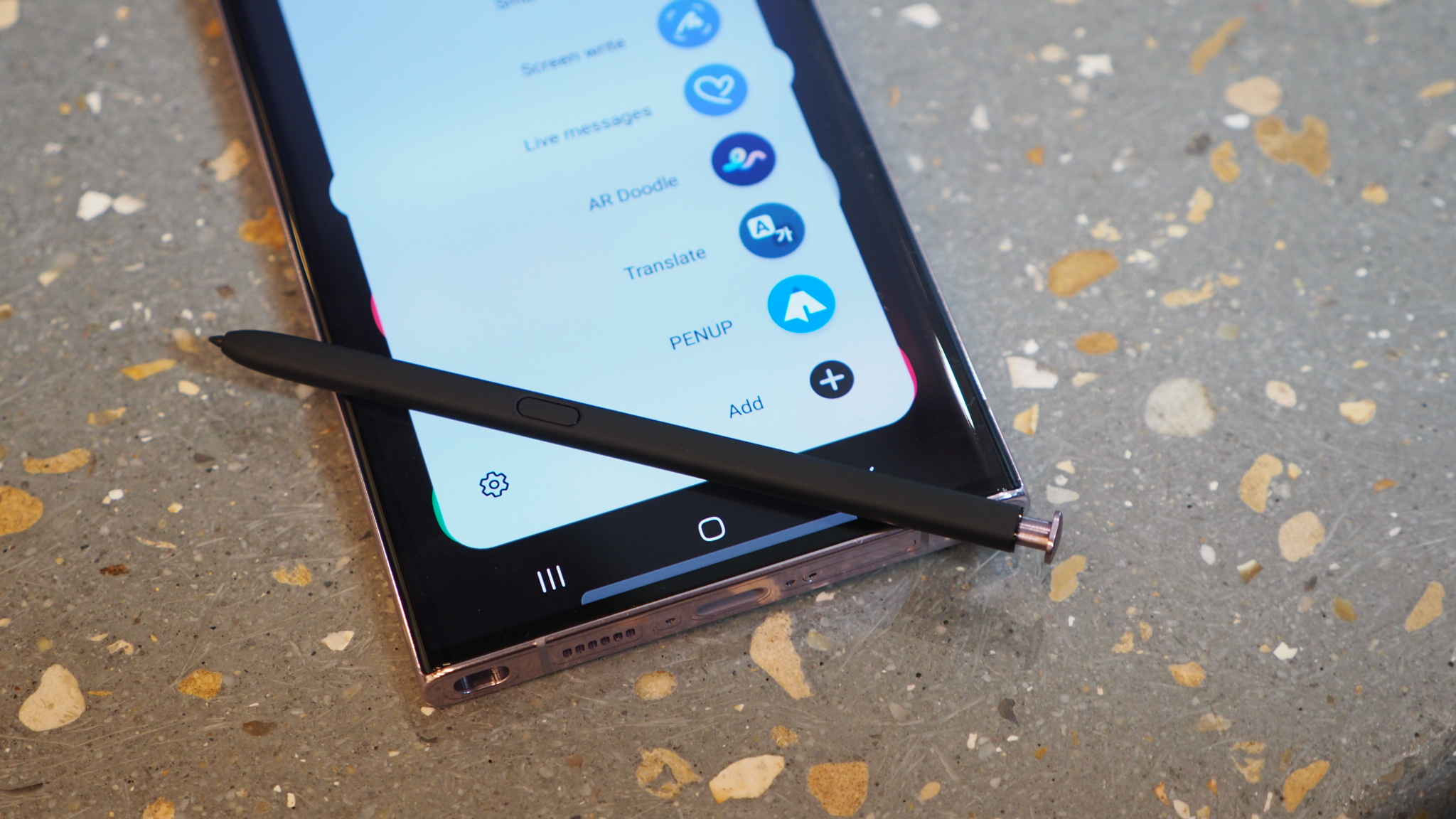
I didn't rush into this Galaxy S23 Ultra review because, frankly, that would be pointless to gauge a true sense of what it's like. As I've learned from reviewing countless Samsung phones over the year, they can take a bit of time to settle down. So if you buy an S23 Ultra and think 'oh, wow, the battery life is a bit pants' then give it a few days and you'll find it improves. That's just Samsung software at play.
Anyway, in terms of raw power it's pretty clear that Samsung has gone straight to the top with the S23 Ultra. Its inclusion of Qualcomm's Snapdragon 8 Gen 2 processor makes that obvious. Interestingly that's the processor that you'll get in all regions, as Samsung puts its Exynos options to rest and gets in bed with Qualcomm.
It's a sturdy relationship to have and a sign of things to come, with this particular chipset further customised for Samsung's use (i.e. there's some overclocking to make it even more powerful). In short that makes the Galaxy S23 Ultra likely the most powerful phone on the market at the time of writing. Even more so if you go all-in and get the 12GB RAM option. It's of the LPDDR5X type, too, which ultimately means its super-fast.
So how does all this act in the real world? I have zero complaints. Everything loads fast. Games run really well and at decent frame-rates. I've not suffered from the handset overheating. But, in the same breath, I don't really feel a major difference here compared to if I picked up a brand new Galaxy S22 Ultra from last year. The best getting better these days isn't a giant hurdle jump like it used to be, it's a subtle improvement overall.
As for battery life: although the 5,000mAh capacity is the same as its predecessor, it's got larger cooling chambers to prevent overheating, and the new processor should bring marginal gains in longevity too. Initially I was sceptical, as the Ultra didn't last an ultra-long time, but after a couple of days it levelled out. A week later and I'm getting to the end of a day having had six-and-a-half hours of screen time and yet the battery still has 20 per cent remaining.
I'd call it a one-day phone per charge, not a two-dayer, but that's just fine. Although Samsung could really do with upping the charging speed. Its wired charging is the same 45W (wireless is 10W) as before and, frankly, the competition is so much further ahead. We might all remember a certain battery incident in Samsung's past, however, so I can see why the company is reluctant to pump batteries up in super-speedy times. But, still, consumers expect faster-charging, as do I.
Samsung Galaxy S23 Ultra review: Cameras
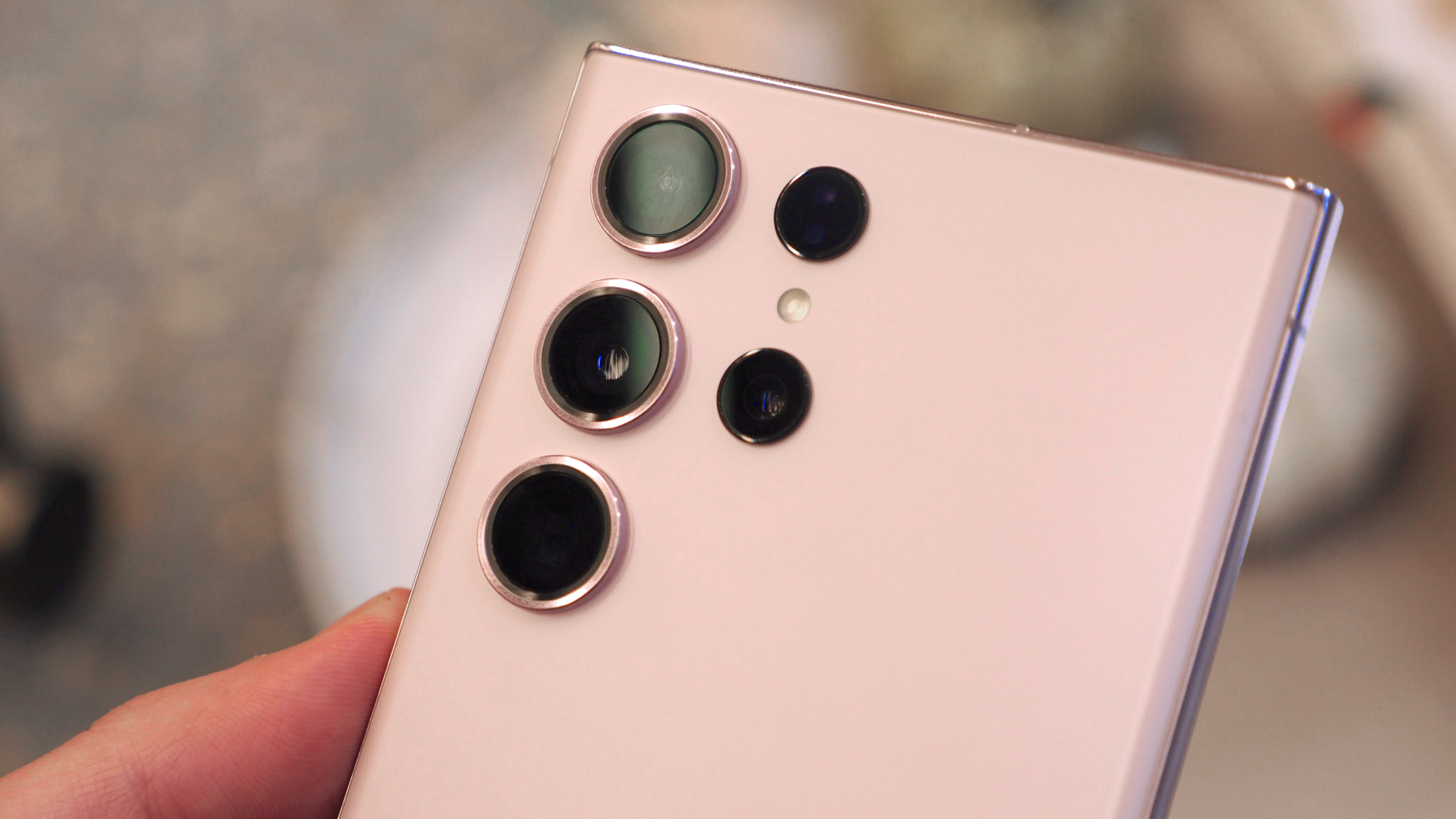
- Main (23mm equiv.): 200-megapixel, f/1.7 aperture, optical stabilisation (OIS), laser autofocus
- Zoom (230mm): 10x periscope zoom with 10MP, f/4.9, OIS
- Portrait (70mm): 3x zoom with 10MP, f/2.4, OIS
- Wide-angle (13mm): 10MP, f/2.2
- Selfie (25mm): 12MP, f/2.2
I've outlaid the five main cameras you'll find on the Galaxy S23 Ultra above so you can see what you're getting. The wide-angle and zoom lenses are all the same as before, while the main camera ups the resolution from 108- to 200-megapixels, and the selfie camera downs its resolution from 40- to 12-megapixels.
I'll say it up front: the earlier Galaxy S22 Ultra's cameras are among the best and most comprehensive that you'll find in any Android phone – especially if you're looking for significant zoom, which many other flagships simply lack by compare. Therefore the S23 Ultra is building on a great foundation – and it barely changes the formula at all.
Without trying to sound like a broken record it's really the S23 Ultra's lean towards zoom options that gives it an edge. In the gallery below I've snapped ultra-wide through to 10x zoom and you can see how dramatic that is. However, I will say that I've rarely opted for the 10x zoom, as it's typically more than I'd need, so I can understand why other manufacturers are backing away from these kinds of lenses in their competitors.




The inclusion of a 200-megapixel main might sound like overkill, but frankly you'll need not think about it much. It's there to do a lot of processing work, converting 16 'pixels' into one for the final image, giving greater potential detail and dynamic range to the 12.5-megapixel final shots. Having more pixels in play also means more areas of focus and that makes its laser autofocus-equipped system super quick to take snaps. I've been impressed with it.
And the quality is genuinely decent too. There's scope to play around with raw files and full-resolution files if you want to go in really deep to things, although I doubt that too many buyers will ever really entertain that option. Because where I find the S23 Ultra is so good is in that point-and-shoot simplicity. There's no additional camera app faff like you get from Sony. The autofocus is on point without needing to interfere too much.
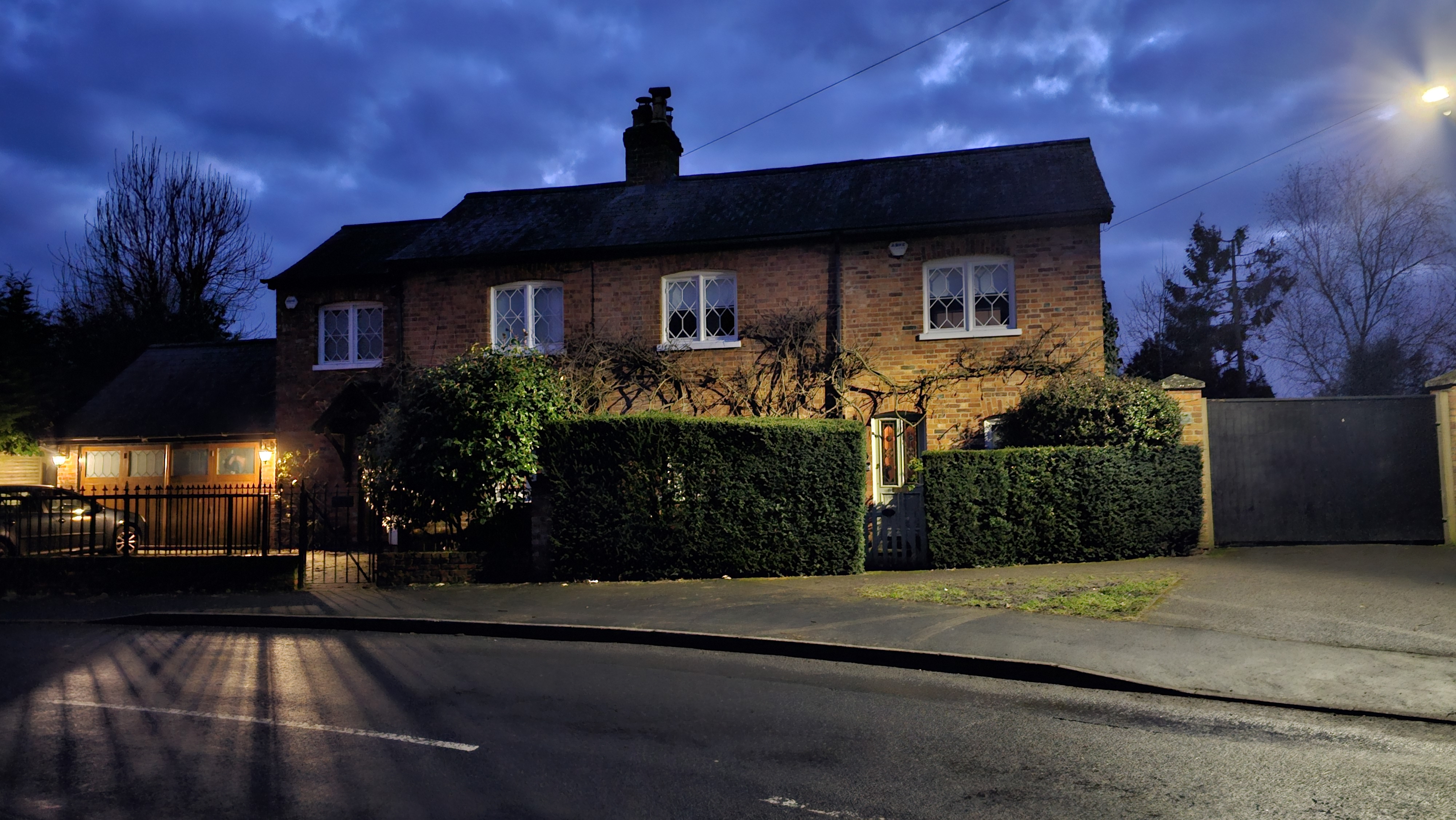

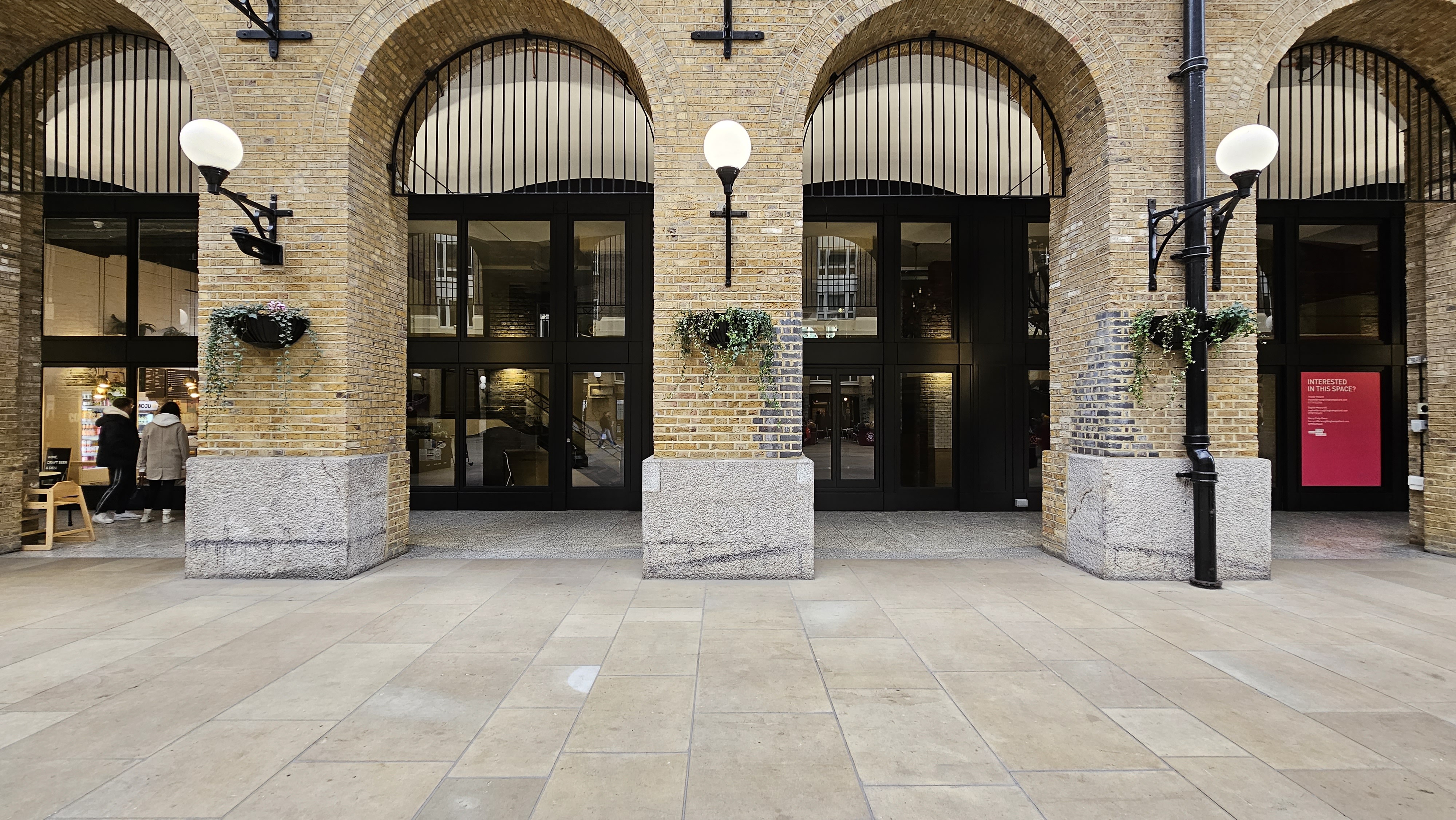
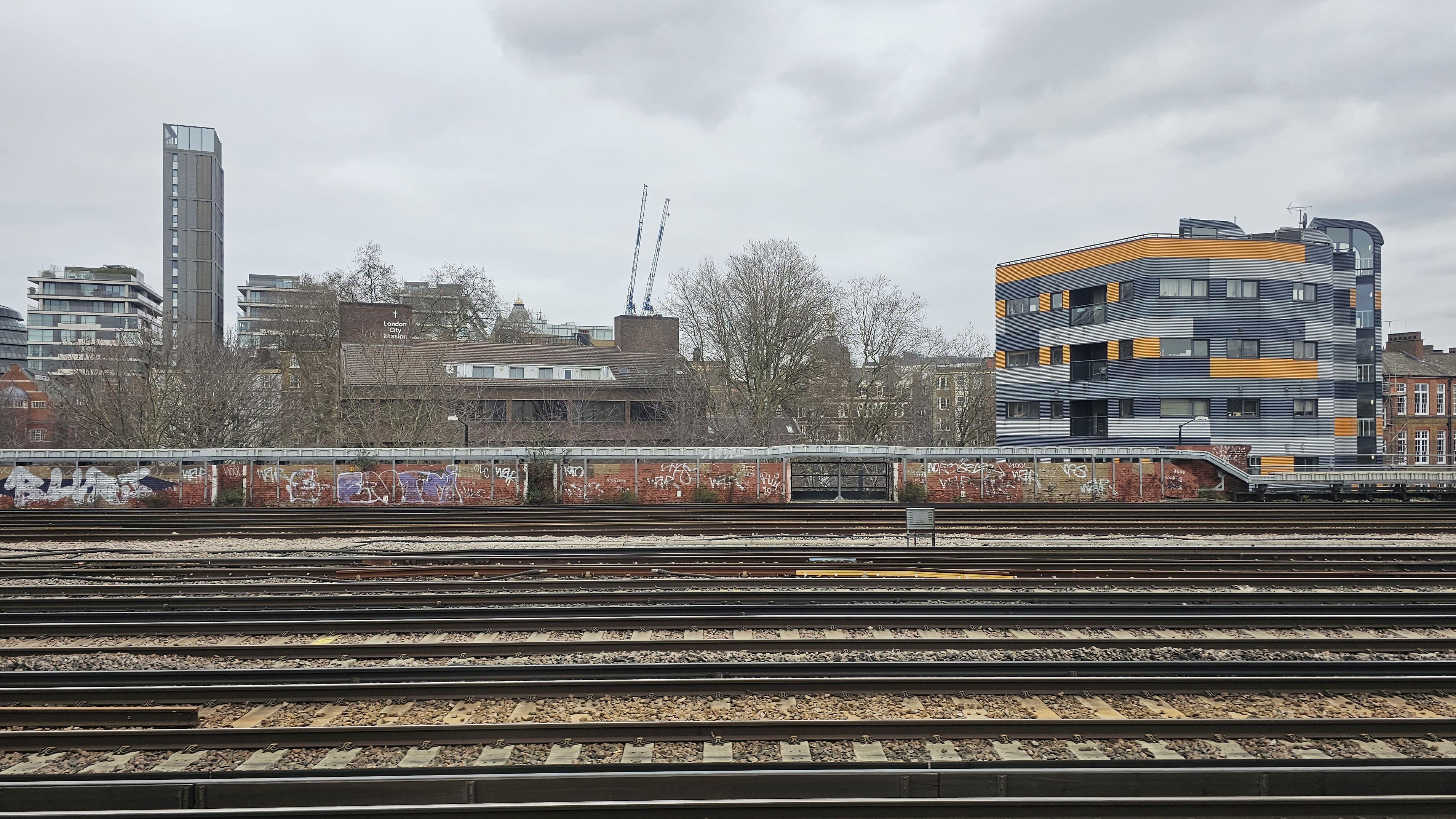


The main camera in particular is very adept when it comes to night shooting too. The optical stabilisation means its possible to shoot longer exposures handheld, which again is all automated by the software. You can see an example in the scene above, no additional editing made, straight from the phone from a 2-ish second exposure. Lovely stuff.
However, the lower-resolution zoom cameras find their limits quicker in low-light conditions. That's why I was at least a little surprised that the S23 Ultra didn't provide more of an overhaul for these additional sensors. Sure, the optical stabilisation on that 10x is good enough, but try using that in darker conditions and it's much less adept overall in helping you to achieve as decent results.
Samsung Galaxy S23 Ultra review: Verdict
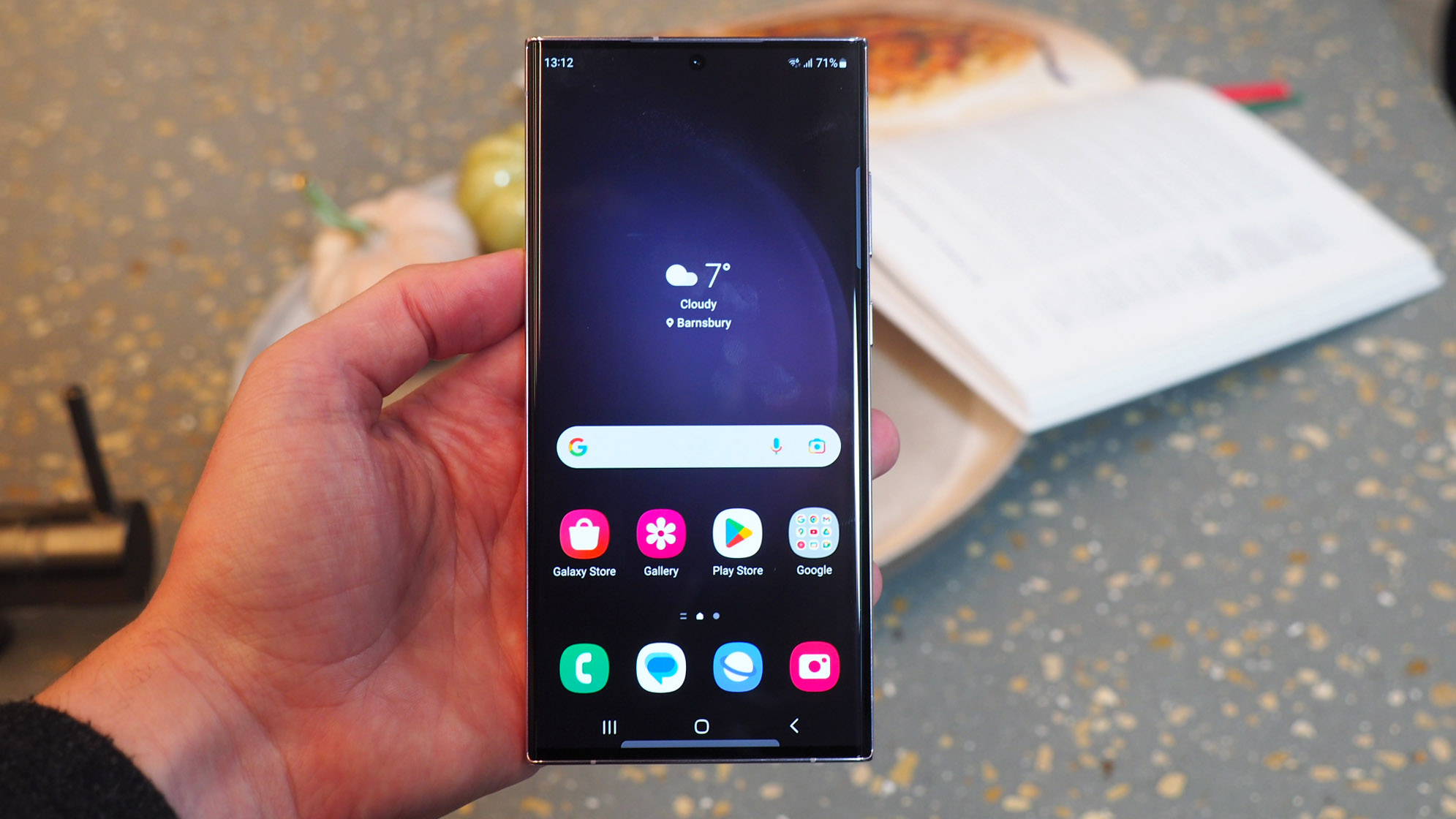
I think there's two ways to look at the Galaxy S23 Ultra: as an upgrade over the S22 Ultra it's marginal, almost like a half-mast 'S' edition rather than full-blown next-level upgrade; but as a standalone device it's an exceptional, refined and accomplished piece of hardware that's easily among the best Android phones you could consider.
Thing is, it's 2023, and with people tightening their belts and the year-on-year mobile phone market down on sales by more than it has been in almost a decade, there's a newfound consumer focus on how much things cost. And the Galaxy S23 Ultra obviously isn't budget. Indeed, its asking price may surprise you – namely because, in the UK at least, it's £100 more (near to 9% more) than its S22 Ultra predecessor was at launch just last year. And that older phone is still an option to buy right now (for even less cash again).
If you want the latest and greatest then the Samsung Galaxy S23 Ultra has clear appeal. Considered against its nearest competition, such as the Google Pixel 7 Pro, the Samsung delivers clear strength with its inclusion of an S Pen stylus and more zoom-capable camera options. It's like the kitchen sink of phones, really, in that there's everything here you could ever want – and possibly more besides!
Also consider
You can pick up the previous Samsung Galaxy S22 Ultra for over £400 less if you can cope with a lower-resolution main camera and last-gen processor on board. That's about a third off by comparison, so that appeal is clear.
Elsewhere, however, the Google Pixel 7 Pro's eye-catching design and great cameras (albeit with less zoom) may appeal, while Oppo's Find X5 Pro is also distinctive looking and has some great cameras (again with less zoom).
Nothing outside of Samsung's own range can offer the S Pen stylus level of control, though, so if that's a key appeal then it'll be the Galaxy you want – whether S22 Ultra or S23 Ultra is up to you, it may depend how good a deal your mobile phone contractor is offering!

Mike is T3's Tech Editor. He's been writing about consumer technology for 15 years and his beat covers phones – of which he's seen hundreds of handsets over the years – laptops, gaming, TV & audio, and more. There's little consumer tech he's not had a hand at trying, and with extensive commissioning and editing experience, he knows the industry inside out. As the former Reviews Editor at Pocket-lint for 10 years where he furthered his knowledge and expertise, whilst writing about literally thousands of products, he's also provided work for publications such as Wired, The Guardian, Metro, and more.
